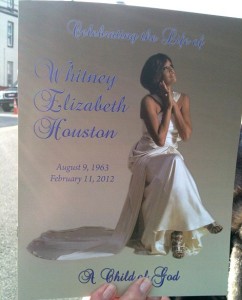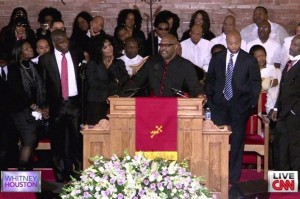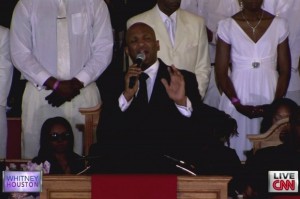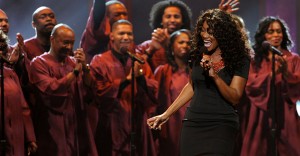
When cleaning out a dresser drawer this week, I ran across my permesso di soggiorno per stranieri, or the Italian “Foreigners’ Permit of Stay” that became a prized possession during my time in Florence nearly 10 years ago. It allowed me to legally live in Italy and to work as a libero professionista, a freelance professional. Just seeing this folded piece of blue-tinted paper—to which a passport-sized photo of me is loosely stapled—took me back to those days in 2004 and 2005 when I temporarily called Firenze home. Looking at my smiling, youthful face, surrounded by freshly done two-strand twists, I remember how idealistic and fearless I was when launching my first living-abroad adventure as a freelance writer.
In many ways, I felt the same way when leaving Chicago last January for my year-long stay in the charming French village of Samois-sur-Seine. It wasn’t a well-known Renaissance city like Florence, but it has its own renown and as a welcoming place for artists and writers over the centuries. When I left for Samois with a French visa glued into my nearly full American passport, I also was excited, hopeful—and dare I say, wonderfully optimistic about this new chapter overseas.
With a scenic village as a backdrop—and a central location in the middle of Europe—I planned to write freelance Travel and Food articles for a wide range of publications. I wanted to travel to nearby European countries and to explore France. Since Samois was about an hour south of Paris, I vowed to take the 40-minute SNCF commuter train into the City of Light at least once a week. I hoped to finally become a fluent speaker of French. And I wanted to start writing a book on African-American women and our love affair with France. Nothing like having a list of goals as long as your arm, right?
But alas … I decided it was time to close this year-long chapter of “cultural immersion,” or what I came to think of as my “mid-life sabbatical” in France. Some weeks ago, I moved back to Chicago, realizing it made more financial sense to return and resume my freelance writing and communications consulting career here. Since coming back, I’ve been working nonstop, settling back into my condo in downtown Chicago, and readjusting to an American life that after a year away sometimes feels a bit foreign. Although there are many things I miss about France—crusty baguettes, safe streets and charming accents are near the top of the list—I’m surprisingly happy to be home.
Still, I managed to do much of what I hoped during my year in France. I got lots of great writing assignments, expanding into publications like CNN.com, About.com Luxury Travel, and Ebony. I traveled some, mostly to the south of France and across the border to Italy for media trips. I got myself to Paris as often as I could, as it’s still my absolute favorite place in the world. Every time I’d get off the train at Gare de Lyon and stroll out into those city streets, I instantly felt lighter and more at home than I often feel in my native Chicago.
Sadly, I’m nowhere near fluent in French. I’d hoped that living in an authentic village would have me conjugating verbs in the subjunctive in no time, but when you report and write in English all day, it’s hard to develop the fluency that comes from truly LIVING a foreign language day in and out. But I haven’t given up. I’m going to enroll in classes here in Chicago to keep myself engaged with le français. And I definitely plan to still write that book about black women and France. I got a start on the project while I was overseas, but there’s much more to be researched and great stories to be told. I’ll need to do it during occasional trips abroad, but I’m determined to get it done.
What I DO know is that my year in France will continue to shape my perspective—and my outlook on life—in ways I can’t yet imagine. I’ll write about some of my initial impressions in my next post, and about others as they hit me later on.

One thing I’ve realized is that my adventure wasn’t mine alone—or really even about me. I’ve been touched and amazed to find that family, friends and my UrbanTravelGirl readers felt as invested in my time abroad as I was. I’m psyched that I inspired many of you to pack your bags, grab your passports, and head out on those first overseas trips. Others have told me that like me, you long to live abroad and are preparing for the day that you make that move. I can’t wait until I can return the favor and become your cheerleader, encouraging you to do it and to just go. We only live once—and we owe it to ourselves to experience as much of this incredible world as we can.
But this is hardly the end of my traveling and wanderlust. Even though I’m back in Chicago, being a traveler is who I am, an intrinsic part of my being. I’m making a trip back to France with my pianist dad Farnell Jenkins this summer as he pursues his own overseas adventure—and I’m thrilled beyond words to know my time there helped inspire it.
And that’s the reality of life. Our international journeys are often circular; they don’t always lead us in a straight line. Some of us discover them early in life, others later. But the point is to get there and to take advantage of all the great stuff we find once it presents itself.
Personally, I can’t wait to see where my own journey leads from here. But you’d better know that wherever it goes, I’ll have my passport firmly in hand. As European travel legend Rick Steves always says at the end his public television shows, “Until next time … keep on traveling.”
Amen to that!



